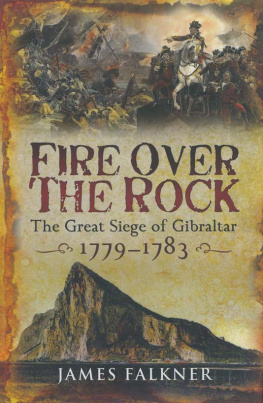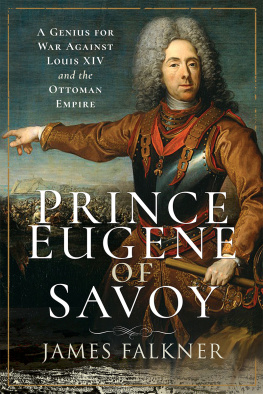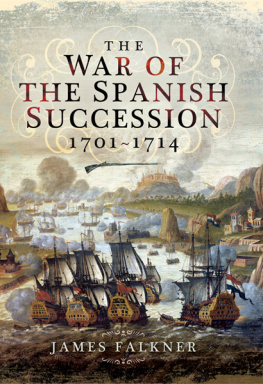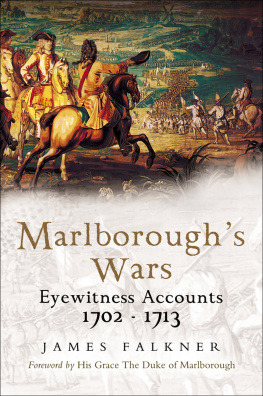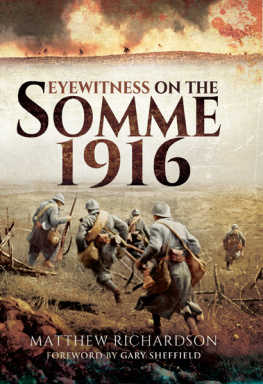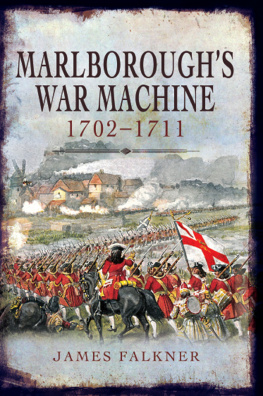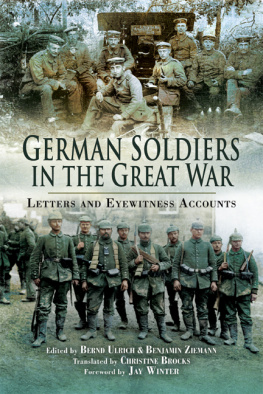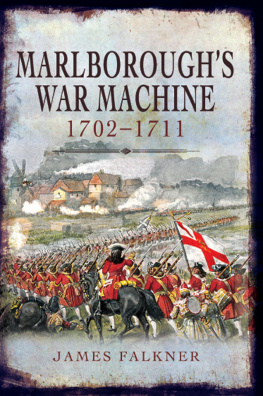First published in Great Britain in 2005 by
Pen & Sword Military
an imprint of
Pen & Sword Books Ltd
47 Church Street
Barnsley
South Yorkshire
S70 2AS
Copyright James Falkner 2005
Foreword The Duke of Marlborough 2005
ISBN 1-84415-170-0
eISBN: 9781844683314
The right of James Falkner to be identified as Author of the Work has been asserted by him in accordance with the Copyright, Designs and Patents Act 1988.
A CIP catalogue record for this book is available from the British Library
All rights reserved. No part of this book may be reproduced or transmitted in any form or by any means, electronic or mechanical including photocopying, recording or by any information storage and retrieval system, without permission from the Publisher in writing.
Typeset in 11/13pt Plantin by Mac Style Ltd, Scarborough, N. Yorkshire
Printed and bound in England by CPI UK
Pen & Sword Books Ltd incorporates the Imprints of Pen & Sword Aviation, Pen & Sword Maritime, Pen & Sword Military, Wharncliffe Local History, Pen & Sword Select, Pen and Sword Military Classics and Leo Cooper.
For a complete list of Pen & Sword titles, please contact
Pen & Sword Books Limited
47 Church Street, Barnsley, South Yorkshire, S70 2AS, England
E-mail: enquiries@pen-and-sword.co.uk
Website: www.pen-and-sword.co.uk
Foreword by His Grace The Duke of Marlborough
It is the sense of realism in this book which strikes me. Not only does James Falkner give a detailed and accurate account of the progress of the War of the Spanish Succession but his frequent inclusion of eye-witness reports invests his account with a vividness, drama and humanity which at times verge on the painful. The events of 300 years ago seem to unfold before our eyes:
Each discharge of the cannons stretched some of my men on the ground. I suffered agonies by seeing these brave fellows perish without a chance of defending themselves but it is absolutely necessary that they should not move from their posts.
Thus, Colonel De La Colonie describes his French infantry on the slopes of the Schellenberg exposed to the Allied artillery; we are sharply aware in real terms of that worst of military dilemmas the need to accept casualties.
However, while basing his story on eye-witness accounts the author astutely recognises that contemporary interpretations are not necessarily the best interpretations and so he skilfully weaves these accounts into his own substantial, detailed and accurate narrative.
The actual eye-witness accounts are drawn from wide-ranging resources. In describing the events of the Battle of Blenheim alone James Falkner weaves into his story current descriptions and judgements from over twenty contemporary sources, thirteen from the Allied side and eight from the French.
There is an equally wide range in terms of rank, from the highest to the lowest on both sides, from Marshal Tallard to Private John Dean of the Foot Guards.
This book creates a welcome degree of understanding beyond mere historical narrative and I recommend it.
Introduction
The War of the Spanish Succession raged across Western Europe in the years between 1702 and 1713. It was fought to decide whether a French or an Austrian prince should sit on the throne in Madrid, and the eventual outcome of the war satisfied no one, becoming the cause of recrimination between Great Britain and her Allies, Holland and Austria. Still, the principal result was an effective limitation on the martial power of France. Not for another ninety years or so, with the rise of Napoleon, would that countrys military capability fully recover and enable her, once again, to bully and intimidate her neighbours with near impunity, as King Louis XIV had done throughout the late 17th and early 18th century.
This remarkable achievement was largely the work of Englands Captain-General, John Churchill, the 1st Duke of Marlborough. His campaigns, fought between 1702, when he took command of the English and Dutch armies, and the end of 1711, saw a whole series of astonishing victories against France and her allies, both in open battle and siege. Louis XIV was in despair at the ruin he faced, but the Duke fell from favour and was dismissed by Queen Anne at the end of 1711. The Allied effort limped on, half-heartedly, for a couple of years, but France was able to recover much of what had been lost in the Low Countries and along the Rhine. When peace came, the French claimant to the throne in Madrid, Louis XIVs grandson, the Duc dAnjou, remained there as King Philip V, while the Austrian contender, Archduke Charles, became Emperor in Vienna on the untimely death of his older brother.
The story of these exciting events, when Marlborough dominated the European military scene, has often been told, not least by the Dukes illustrious descendant, Sir Winston Churchill. In addition to such later histories, it is possible to find a surprising number of memoirs, diaries and reminiscences left by those who took part in the campaigns, or were observers of those momentous times. Those stories (some remarkably lurid, others a little dull) are well worth the effort to find, and it is pleasantly surprising that so many ordinary soldiers at that time had considerable, if sometimes fairly simple, literary skill. At the one extreme, with the wordy correspondence of those who dealt with matters of grand strategy or affairs of state the letters sent by monarchs to their generals, messages from the commander of one army to another, or the voluminous and immensely valuable official correspondence of the Duke of Marlborough himself it is possible to see guiding hands at work in waging Continental war. At the other end of the scale are the intimate, often very amusing, accounts of the life of the trooper or soldier of the day the minute details of camp life, the labour of marching in mud or dust, and wreathed in flame and smoke in the teeming line of battle.
Those accounts that have been published (and in some cases revised, translated and republished) often allow the veteran to speak for themselves and this can limit their effectiveness. Sometimes the eyewitness narrator was standing just a little too close to the action, and smoke, noise, fatigue and fear got in the way; events, dates and timings became jumbled in the memory. The resulting accounts of momentous deeds, written in some cases years later, often intended only for family members and friends to read, can be rather dry and, in a way, too safe. The veterans will have done their best to recount events of great importance to them, but few would wish to admit that, some time afterwards, they simply didnt remember a certain detail, a date or a time, a name or a rank, or a place-name, which might be important to the story. Sticking to the standard and accepted account of a battle neatly avoided having to make such an admission. Those diarists who kept a daily journal (as quite a few did), had the freshness of memory as an aid, but their own familiarity with those same daily events could lead to mundane repetition. Therefore, without wishing to unduly embellish what are already valuable accounts, I have tried to tell the tale of Marlboroughs wars between 1702 and 1713 as a genuinely exciting story, using my own narrative of the campaigns, linked, far more importantly, with extensive edited extracts from the memoirs of those veterans who took part, and those who watched from the sidelines.


